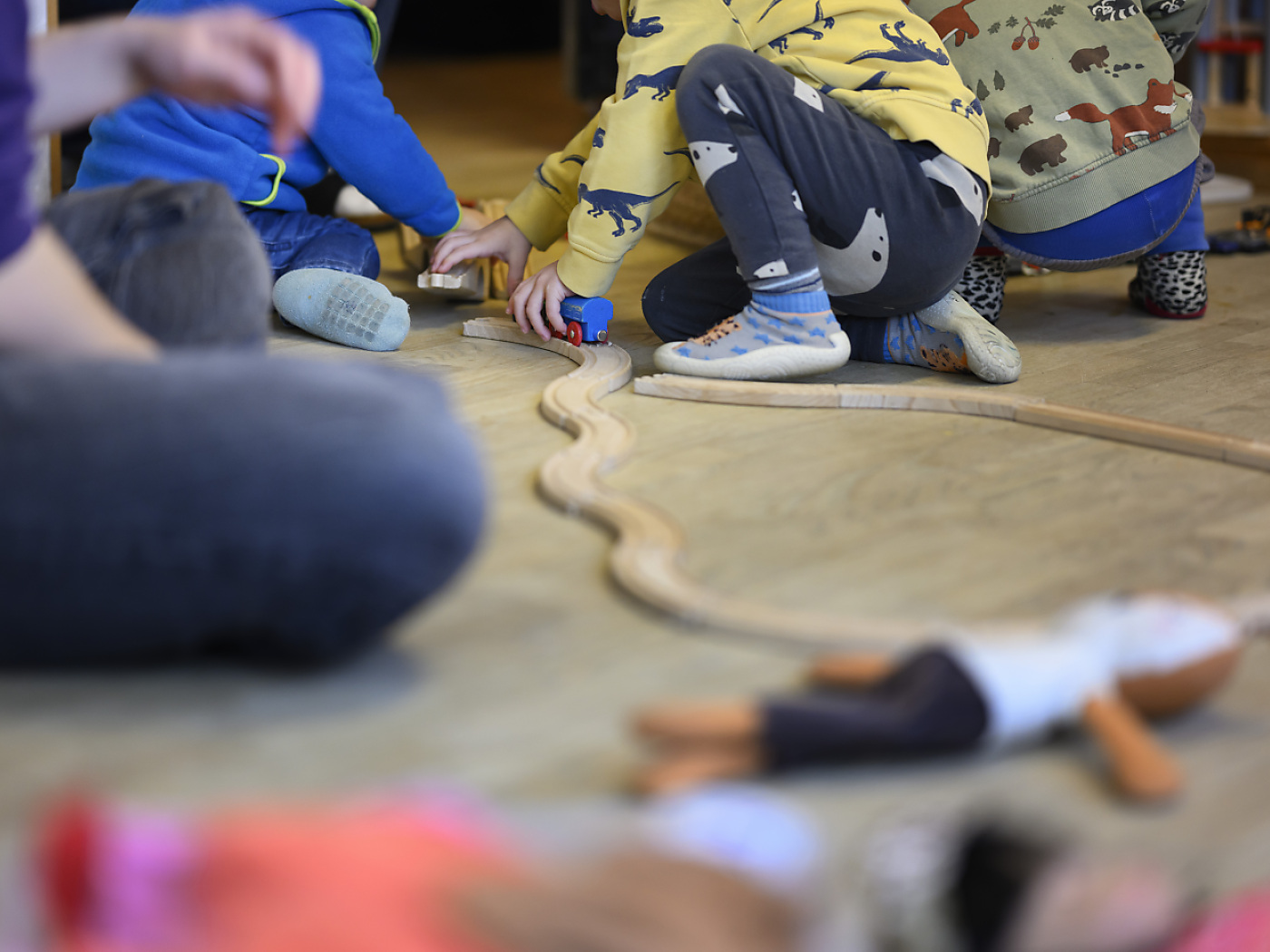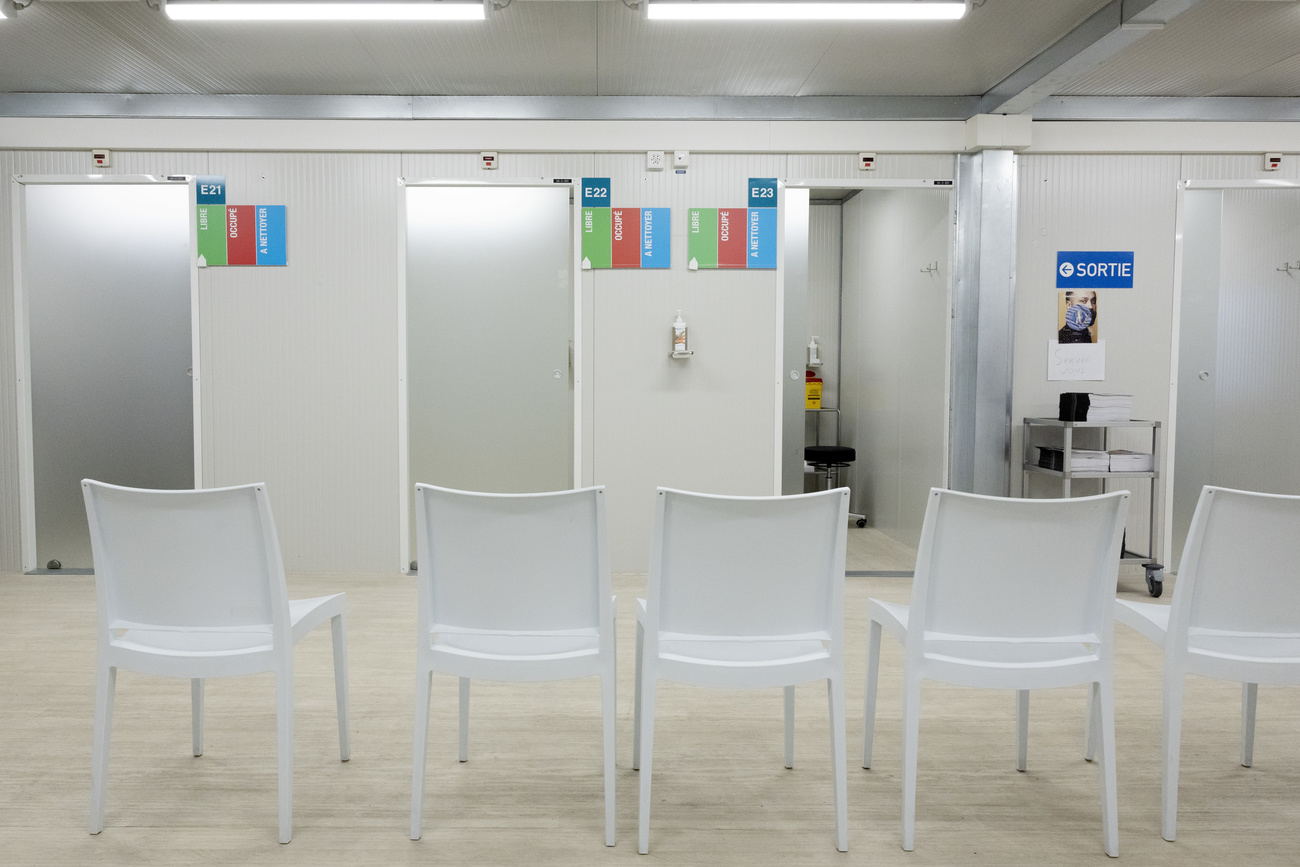
Swiss parliament approves allowance for childcare

The cost of daycare in Switzerland will be alleviated via a new childcare allowance for children up to the age of eight. On Tuesday, the House of Representatives approved the model proposed by the Senate.
+Get the most important news from Switzerland in your inbox
The current federal support programme for childcare, in force since 2003, will expire at the end of 2026. Parliament is looking for longer-term solutions.
In March 2023, the House of Representatives adopted a solution involving federal funding. But the Federal Council was against it, arguing that it was too expensive. The Senate also opposed it last December.

More
Childcare allowance for Swiss daycare centres remains talking point
Instead, it accepted another project, with a new childcare allowance based on the family allowance model and financed by the cantons, without federal aid. In this context, the Senate rejected the continuation of the programme agreements currently in place with the cantons.
CHF200 million over four years
The House of Representatives supports these agreements. It is a question of relieving the burden on parents who have their children looked after in an institutional setting, and of supporting the cantons in promoting early childhood policy, argued parliamentarian Estelle Revaz on behalf of the committee.
Co-rapporteur Dominik Blunschy of the Centre Party added that the agreements should ensure equal opportunities throughout Switzerland. Several speakers from the centre-left highlighted the current regional differences in the supply of childcare places, including for children with disabilities.
+ Why Switzerland’s daycare numbers are rising amid regional divides
The House of Representatives has decided to allocate CHF200 million in federal funding over four years to these agreements. According to Katja Christ of the Liberal Greens, the federal government should not only dictate the rules, but also make a “reasonable” financial contribution.
The agreements must promote the development of childcare facilities for children and children with disabilities, as well as the development of early childhood promotion policy. The House of Representatives has included measures to improve the educational and structural quality of childcare provision, and to make it easier to reconcile family and working life.
Parliamentarians on the left did not manage to take the project any further. Meanwhile, the right-wing Swiss People’s Party and some centre-right Radicals-Liberals unsuccessfully opposed the agreements and federal aid. Bettina Balmer, a Radical-Liberal, pointed out that responsibility for childcare outside the home rests with the cantons. Interior Minister Elisabeth Baume-Schneider was also against the programme agreements.
Up to eight years
The People’s Party and Radical-Liberal Party also argued unsuccessfully against the new childcare allowance. It is to be paid to working parents for children up to the age of eight who are cared for in an institutional setting, such as a crèche or after-school service. It is also intended for parents who are not in gainful employment if they are in education or further training.
The childcare facility must be located in Switzerland and a national language must be spoken there, the Senate insisted. The House of Representatives rejected these conditions. Baume-Schneider warned that a dispute with the European Union on this issue could arise in connection with the application of the agreement on the free movement of persons.
The allowance should be a minimum of CHF100 per month, and increased by CHF50 for each additional half-day of childcare. Left-wing parties failed to limit parental contributions to a maximum of 10% of income.
For children with disabilities, the Senate decided that support should be one-and-a-half to two times higher if the costs of special care are higher. The House of Representatives decided that the aid should be one-and-a-half to three times higher in such cases.
However, it rejected another request from the left to introduce a similar concept for children under 18 months, with support one-and-a-half times higher. The House of Representatives also rejected other proposals from both left and right.
Counter-proposal
The project is to be presented as an indirect counter-proposal to the Social Democrats’ popular initiative on crèches, which seeks to guarantee every child, from the age of three months until the end of basic education, a place in a crèche or an after-school or extra-curricular childcare facility. The dossier will now go back to the Senate.
Following this, the House of Representatives also adopted by 101 votes to 88 a committee postulate calling for a report on the quality of crèches, and in particular on the number of staff and their working conditions. The Federal Council was in favour of the text, unlike the People’s Party and Radical-Liberal Party.
Translated from French by DeepL/sb
We select the most relevant news for an international audience and use automatic translation tools such as DeepL to translate them into English. A journalist then reviews the translation for clarity and accuracy before publication. Providing you with automatically translated news gives us the time to write more in-depth articles. The news stories we select have been written and carefully fact-checked by an external editorial team from news agencies such as Bloomberg or Keystone.
Did you find this explanation helpful? Please fill out the short survey below to help us understand your needs.

In compliance with the JTI standards
More: SWI swissinfo.ch certified by the Journalism Trust Initiative












































You can find an overview of ongoing debates with our journalists here . Please join us!
If you want to start a conversation about a topic raised in this article or want to report factual errors, email us at english@swissinfo.ch.